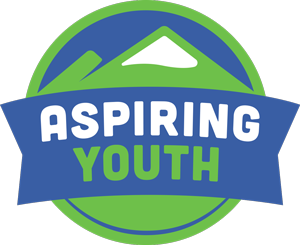 Many of the kids we know and love show signs of inattention, hyperactivity, and impulsivity.
Many of the kids we know and love show signs of inattention, hyperactivity, and impulsivity.
We often see this interfering with their school performance. A study recently published in Clinical Neuropsychology supported the idea that children with Attention Deficit/Hyperactivity Disorder (ADHD) have better cognitive performance when they’re allowed to engage in physical activity.
What the study found:
The researchers compared a small group of typically developing 10 to 17-year-olds with a group who had ADHD (both inattentive and combined symptoms). Participants were required to engage in a cognitive performance task, and the intensity and frequency of their movements were measured while they performed the task. Basically, they found that the kids with ADHD engaged in more intense movements when they got the answer to the cognitive task correct, compared to the typically developing group.
What does this mean?
I know what you’re thinking: “Hyperactive kids do better when they’re active? No way!” But what the researchers actually found was that children who have ADHD — not only combined-typed but also inattentive-type — engage in more intense movement when answering questions. The researchers believe kids with ADHD actually do better when they engage in movement to self-regulate their alertness. Allowing them to move can help improve cognitive performance.
How to advocate in school:
Kids with ADHD need to move! Even if there aren’t signs of hyperactivity, it’s apparent that even inattentive kids give their best performance when they’re allowed to engage in a physical activity. Present this idea next time you are in an Individualized Education Program (IEP) or Section 504 meeting. Advocate for some possible accommodations for your kid, such as:
-
Allowing the student an alternative to sitting in a chair:
-
Letting the student take breaks throughout the day:
-
Walk the track
-
Run a teacher errand
-
Help deliver papers in the office
-
Ensure these accommodations are in place during state testing, class work and assessment time. Remember: these accommodations could be available to your child, but that does not mean he or she HAS to use them. Maybe the team decides walking the track is an option, but he or she would rather deliver papers to classes.
Do what works for your child’s needs so that those cognitive juices are flowing!
Breea M. Rosas, B.A., Ed. S. Candidate
Breea graduated from Central Washington University with a Bachelor of Arts in 2013. Her undergraduate major was Psychology, with a minor in Family Studies. She completed the coursework for an Educational Specialist degree in School Psychology in Spring 2015, with an anticipated graduation date of Spring 2016 upon the completion of an internship with the Franklin Pierce School District. Professionally, Breea has worked with Aspiring Youth as a lead facilitator for summer camp and served on the curriculum development team. Additionally, Breea has experience working with adults of varying abilities, including autism spectrum disorder, as well youth in the school setting. She is interested in social emotional learning, educational implications of social/emotional and behavioral disorders, supporting youth with behavioral disorders, and the trajectory of students with disabilities post-high school. In her spare time, she likes to read, particularly historical fiction and non-fiction, bake, and spend time with her family.



Leave A Comment
You must be logged in to post a comment.